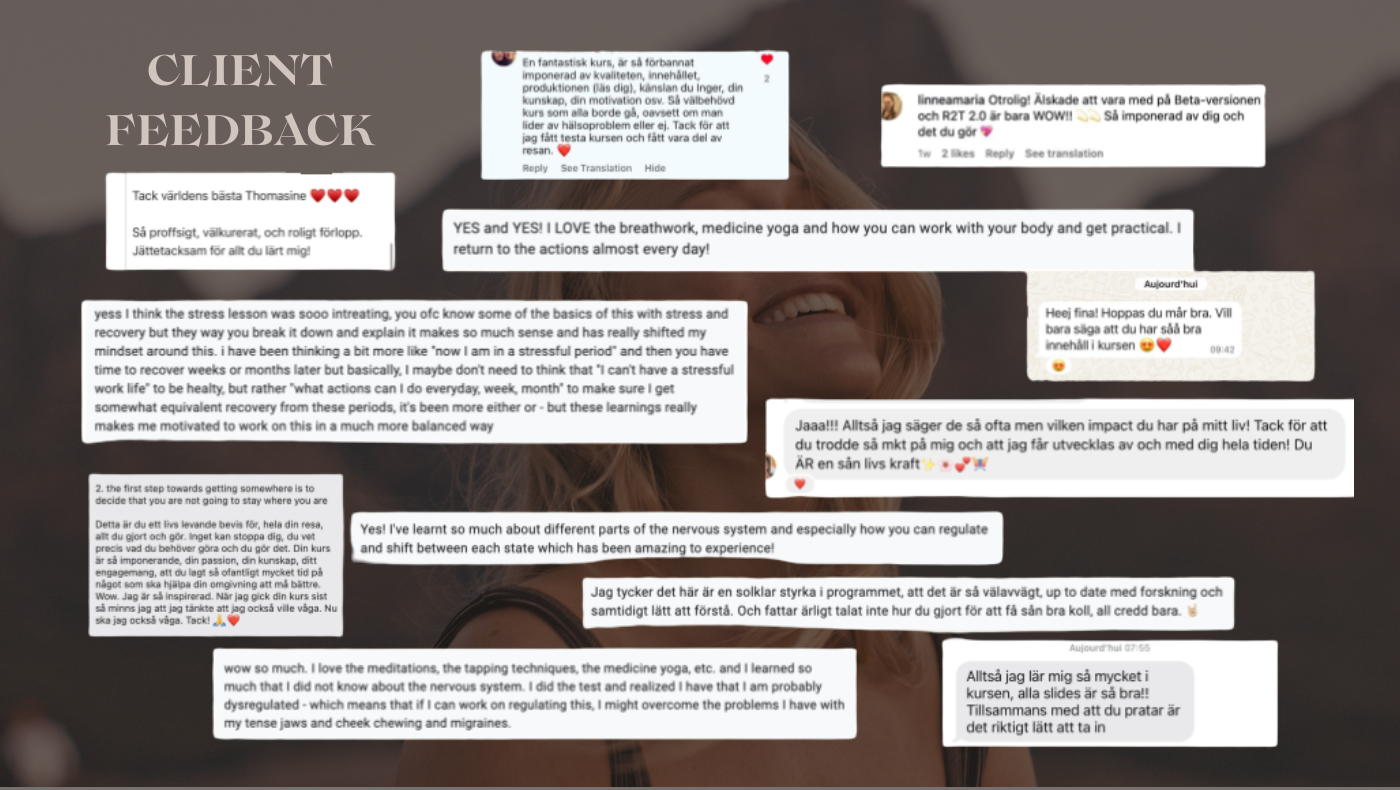For the woman who manages it all - except her own stress.
Revive to Thrive helps you shift from pushing through to performing with EASE.
A step-by-step path taking you…
😵💫 FROM living on autopilot, never feeling “enough” & overwhelmed by “shoulds” & a growing list of symptoms even when following all the health hacks
🌞 TO lasting energy, mental clarity & stress resilience cause you know how to regulate your inner world to excel in your outer world
Inside you’ll get:
🌿 The 30-day Blueprint - Never again fall victim to your stress load
🎥 Science-backed sessions - Turn insights into real results with practices on mindset, nervous system, gut, hormones, detox & more
💬 Weekly coaching - Get personalised expert guidance in real-time
🤝 Community of women - Co-regulate with each other
📁 Practical cheatsheets & checklists on gut, nutrition, hormones, inflammation, supplements, action planning & much more
Ready to shift for GOOD? Book your call 👉 https://shine.thomashinehealth.com/revivetothrive
powered by

skool.com/revive-to-thrive-7035
Rebalance from chronic stress, reconnect with you & build lasting habits - guided by science & self-regulation techniques, together in sisterhood.

